Voices of the Diaspora: Meet Croatia Swimmer Ema Rajić From The States!
April 20, 2021 - Introducing a new series, Voices of the Diaspora, highlighting stories and success of Croats abroad, we meet Ema Rajić, a member of the Croatia National Swimming team and a true lover of palačinke!
So how did you end up in the States?
My parents immigrated here in their 30s, as my dad was pursuing a Ph.D. at the University of Illinois. I was born in Illinois (have an older sister by four years) and have lived there till I was 18. Then we moved to Austin, Texas where we live now when I’m not at school.
How was it growing up in the States as a Croat? Did you learn Croatian?
Yes! My parents made sure that I learned Croatian. I’m not the greatest speaker but I can read, write, and understand pretty well. I often get shy I will make a mistake, then not want to speak in front of others. Still working on this every time I go back so that hopefully can keep the language in my life!
What language do you speak at home?
My parents speak Croatian but my sister and I speak English 90% of the time. There are some phrases my sister and I use a lot in Croatian but it’s mostly English. We speak Croatian in public with our parents if we have anything to say in private (going to the bathroom, not feeling well, this person is rude, etc).
Did your parents ever tell you about where they come from?
They do however I often have to ask them; they don’t really share much unless they are prompted to. I’ve learned more about my mom’s background during the war especially this past summer living with her in quarantine. It’s really fascinating to me but my parents often don’t go into a lot of detail because their past can be hard to talk about.
Any Croatian traditions you have at home?
We make a lot of Croatian food and celebrate big holidays with Croatian staples (palačinke are a must!). We have a lot of traditions during the holidays like Christmas and how we decorate our tree. This isn’t a tradition but we have a lot of Croatian pictures and paintings of Croatia up around our house.
What place feels like home the most?
I think as I’ve grown up and have had to move out of Illinois, my home base is honestly wherever the family is. So I feel at home in Texas but also I feel at home a lot when I’m in Croatia. My mom is from Velika Gorica and has a house there where my aunt Sanja lives. My dad is from Imotski and I have a ton of great memories there where it feels like home. We also have an apartment in Makarska and usually eat at the same places too there. Makarska feels like home too.
How often do you come back to Croatia?
Growing up, we tried to go visit family in Croatia every other summer but when school and swimming got hard, it turned into whenever it was possible. The last time I went was the summer of 2019 but I’ll be going back this summer (in a month!!).
Do you feel like a tourist in Croatia? How does it feel to come back?
I don’t really feel like a tourist but sometimes I feel a little misplaced because I can’t drive over there and I get so shy speaking. I’ve been there enough times to know each place we go to very well, and we’ve been to Split, Dubrovnik, and several other places as well. If someone needed a tour guide, I could definitely do it!
The biggest difference between Croatia and the States?
The people and the culture. You can walk more around in Croatia and just see the rich history everywhere which is so cool. The people are nice but also are firm in their own ways, they won’t say something if they don’t mean it which I really respect. People in Croatia are much more honest than people in America. Growing up with Croatian parents has really shown me the difference too and that’s something ingrained in my life now.
What are your favorite things about Croatia?
Again, the culture is so rich and beautiful. I love learning about history and just seeing it in cities or the countryside. My favorite thing is to drive or walk around and just sightsee. The food obviously is the best ever and I really really miss eating palačinke by the beach in Makarska, or čevapi, and pizza. The seafood is amazing too and you really can’t replicate that here.
Are there any Croatian communities in the states that you've lived in?
When I lived in Illinois, we had a Balkan group of different Balkan families where we would always celebrate holidays and birthdays together. We would get together maybe once every two weeks. There wasn’t much in Illinois in terms of Croatian markets or restaurants.
Have you met many Croats abroad?
I have met a lot! The swimming Croats I met first in Croatia but then obviously see them around here. I’m seeing a Croatian teammate this weekend in Southern California for a swim meet so I’m really excited about that. I’ve met some random people who have Croatian background like at the airport or in class, which is still pretty cool.
So how did you get into swimming?
My sister actually started swimming first then my mom threw me in there as well. I didn’t like it much at first but then I made some good friendships and wanted to continue swimming for them. When I was 10 I started getting better and then I got more competitive at it as well.
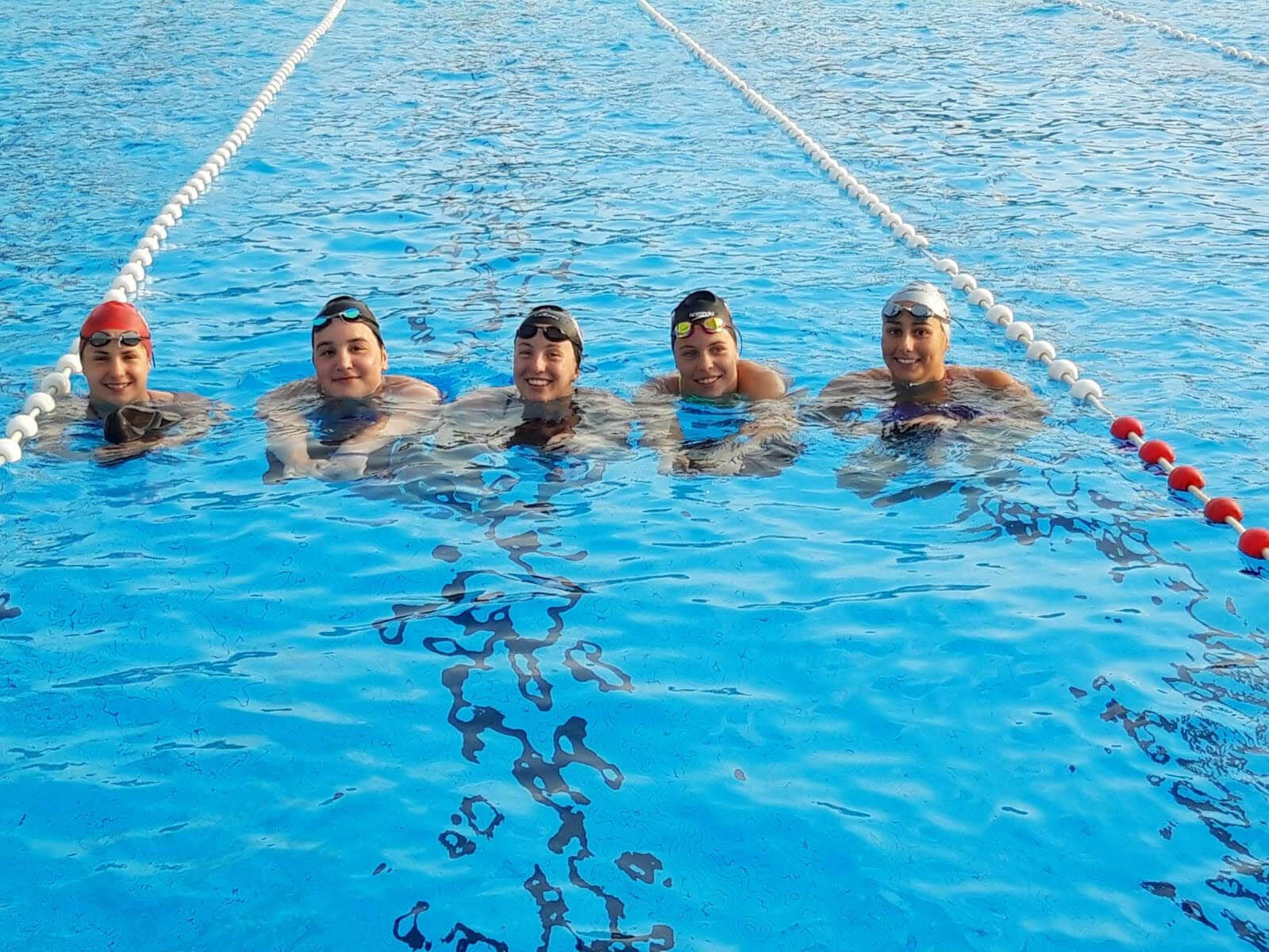
Cal Swimming: Marija Dodik, Kristina Miletić, Martina Andrašek, Amber Baldani and Ema Rajić
What are some differences when it comes to swimming in Croatia and the States?
Croatia, or Europe in general, do a lot more yardage than the States or at least the places I have been to. I don’t think that’s necessarily a bad thing but it's just a little bit of a transition between the two. The amazing coaches I have at Dubrava are always in constant contact with me and making sure I’m getting the best support from them at any time. I’m so grateful.
How did you decide to swim for Croatia? What was the process like?
My sister was the first one thinking about swimming for Croatia but never really got around to it. I thought about it as well but I wasn’t sure how to start the process to do that. One day during practice at Cal, Croatian and Cal legend Duje Draganje walked through the door, and soon enough, he was giving me advice on how to transition into Croatian Swimming. I filed for a different Sport Nationality through FINA and got it pretty soon after. That summer I made the national team and the world's team as well. I wouldn’t have gotten into Croatian swimming without Teri or Duje especially. My family has been incredibly supportive as well, my mom especially. She was the one driving me around in Zagreb to practice and always being a shoulder to lean on. My aunt Sanja has been so supportive too. She’s always just a text away and always cooked my favorite food whenever I’m over. My entire family has just been so supportive. They came to watch me swim when I was trying to qualify for Worlds and actually watched me qualify too. We had a nice coffee afterward and it meant the world to me. I’ll never forget going home and just start crying from joy and relief.

Irena Rajić, Sanja and Branko Fabijančić, Ema Rajić, Ana Fabijančić, Josip and Vesna
Can you describe how it is living in California?
Going to Cal has been the best decision I have ever made. For school, it’s one of the world’s leading programs in genetics and genomics (my major). For swimming, it’s obviously one of the best swimming schools not only in the country but has so much success internationally as well. This really gave me the confidence to come here and not only just make it thru such a rigorous program, but succeed way beyond my imagination. Obviously couldn’t have done any of this without my coaches and my team, they’ve always been so supportive and always there to cheer me on.
So you've been swimming for a while now, what is your biggest achievement?
Making Worlds as part of Team Croatia in summer 2019! It was an amazing experience where I met so many great people and will always cherish the memories. I didn’t swim too great, but being part of Team Croatia and building those relationships was the best experience.
What is the next step in your swimming career?
Hopefully the Olympics in Tokyo! First, have to go to Europeans in Budapest then Croatian Nationals. This summer will be a big one and I’m super excited to train in Zagreb with Team Dubrava and Coach Igor Berislavic.
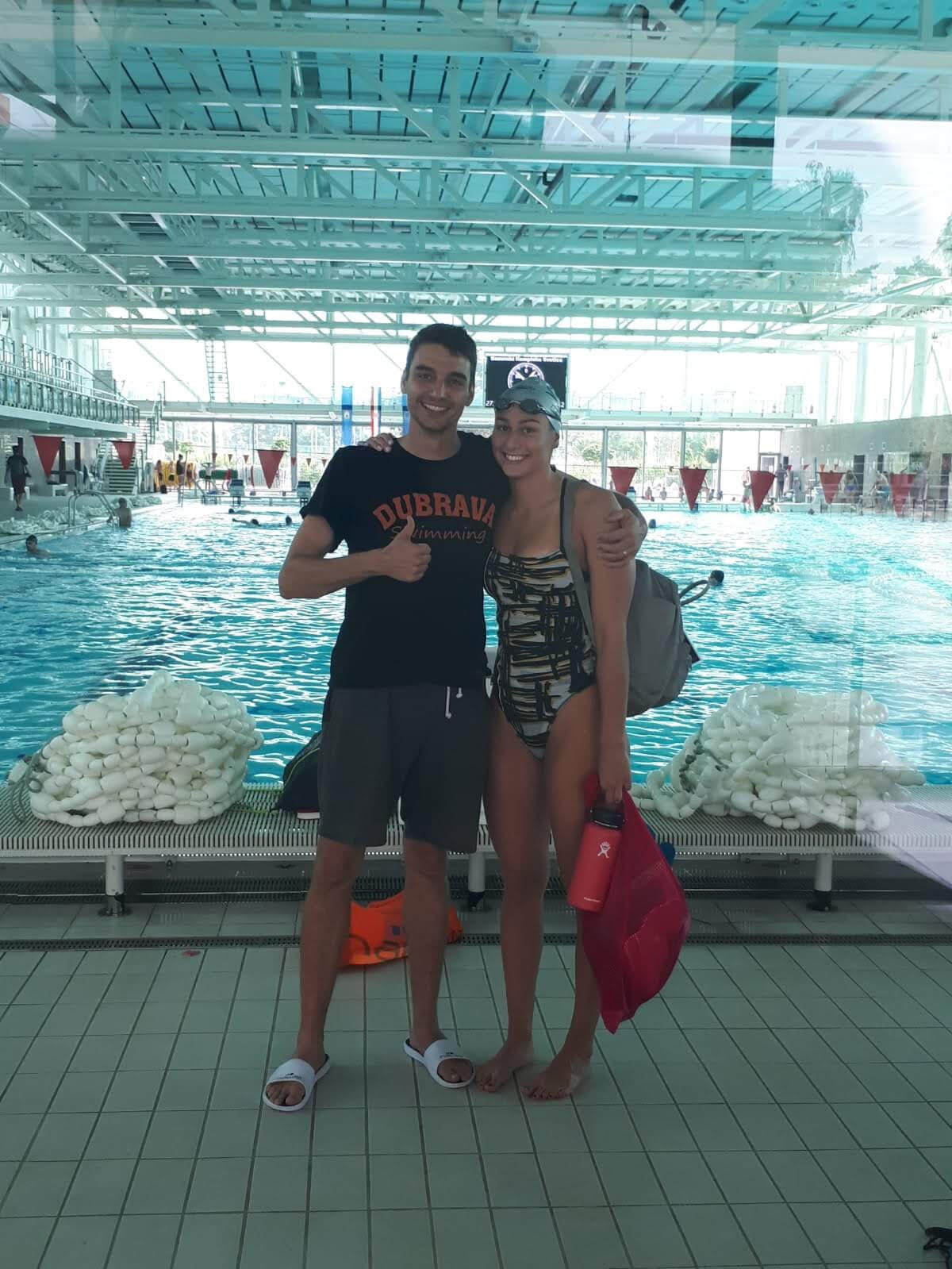
Ema with her coach, Igor Berislavic.
Finally, do you see yourself visiting Croatia more often now that you're part of the national team?
Yes. I love Croatia and traveling so will definitely keep coming back. I want to move to Europe so hopefully will at least only be a drive away from Croatia.

We are excited about Ema's future and wish her the best at the Olympic trials!
Are you part of the Croatian diaspora and would like to contribute your voice and experiences to this series? If yes, please contact This email address is being protected from spambots. You need JavaScript enabled to view it. with the subject "Diaspora."
To learn more about sport in Croatia, CLICK HERE.
International Poetry Day Croatia: Non-Croatian Poets about Croatia
March 21, 2021 - In honour of International Poetry Day Croatia, TCN's Ivor Kruljac met with non-Croatia poets to share their views on Croatia through their art.
Since 1999 and the 30th General conference of UNESCO, March 21 is recognized as International Poetry Day. As said by the United Nations official website, the date was dedicated to poetry to celebrate „one of humanity’s most treasured forms of cultural and linguistic expression and identity“, which history remembers practiced in every culture on every continent.
„Poetry reaffirms our common humanity by revealing to us that individuals, everywhere in the world, share the same questions and feelings“, states the UN.
Supporting linguistic diversity and an opportunity of endangered languages to be heard within their communities along with encouragement to bring back the oral tradition of recitals, the promotion of poetry teachings and poetry in the media, as well as connecting this ancient art form with other art forms such as music, painting, and theatre, are all goals of the International Poetry Day. And here at TCN, we want to do our part and connect poetry with what we always struggle to report on: Showing all aspects of Croatia.
To the fans of contemporary poetry, it's no secret that poets today are very much alive, productive, and regularly present their work. If not in books then at poetry events, open-mics, and on social networks – either from their private accounts, blogs, or in groups dedicated to this wordy-art.
We asked non-Croatian poets through social networks and private group chats dedicated to poetry who either visited Croatia or know about Croatia to send us poems about Croatia with a promise that the top 5 will be published and authors presented. Now, to be fair, while the author of this article is a poet, that is far from being a legitimate poetry critic and the rest of the TCN's editorial team (at least to public knowledge) aren't even poets. The idea was to pick the poems based on how it resonates with us as individuals who gave the art a chance. The academic acknowledgment is nice, but resonating with the audience, the everyday people, should be the goal of any art publically displayed, right?
To be honest, there wasn't really any competition as, by the end of the deadline, we received only four poems. Nonetheless, the beauty of these poems and great resonation with TCN was there and we are happy to publish these poems and ranked them, from fourth place to the very best. You can decide for yourselves which poem you like best (and the messages you see in their work), but here the four poems that „knocked on the doors of our mailbox“ (metaphorically, quite poetically, speaking).
#4: „Croatia“ by Jesus McFridge
Poets such as Charles Bukowski and Walt Whitman are very well known by their name, but just as in many other arts, poets are no exception in sometimes preferring to use pseudonyms to present their work while keeping their identity unknown and privacy secured. Such is the author that goes by the name of Jesus Mcfridge. Quite active in a Facebook group Poetry Criticism For Cool Cats, he revealed in his application that he is from California and described himself as a „24-year-old American that watches too much television“. He added that his knowledge of Croatia is limited to the country at the 2018 FIFA World Cup, but he has fallen in love with the Croatia national football team's checkered uniforms. Despite never visiting Croatia, after „Croatia's tragic loss in the 2018 World Cup final“, he found himself also crying just as many Croatians did.
„In this poem, I have attempted to capture the feeling of this tragic loss that we have shared together, despite the vast seas that separate us“ concluded Mcfridge in his application.
His bittersweet poem simply titled „Croatia“ indeed brings some painful memories but presented in a short and funny way allows us to look at the past in a brighter way, bring back smiles, and give us the strength to cheer for our Croatia national team as they prepare for the next trophy hunt.
Croatia
They
Almost won
The world cup
But
Mandzukic scored
An own goal.
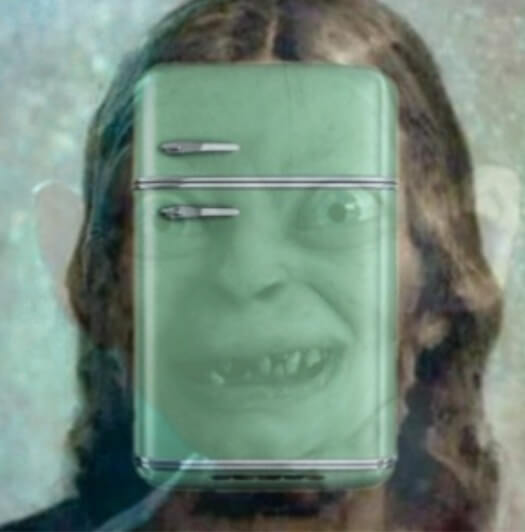
Jesus Mcfridge © Jesus Mcfridge
#3 „Daniela's song“ by Christian Sinicco (English translation by Daniela Sartogo)
Christian Sinicco was born in Trieste, Italy, and his poetry is published in various anthologies and magazines and an editor of the magazine Argo with which he has dealt with the widest overview of poetry in the Italian dialect from 2000 to the present day. He published three books of poetry: „Passando per New York“ (Lietocolle, 2005), „Ballate di Lagosta“ (CFR, 2014) and „Città esplosa“ (Galerie Bordas, 2017). He won the first Italian Slam Poetry Championship and served as the president of the slam poetry association LIPS - Lega Italiana Poetry Slam (2013-2014) and is the current vice president of Poiéin. He is also active in a global initiative of slam poets organizing the world slam championship which early results can be followed on Twitch.
He participated in numerous book festivals including four festivals in Croatia: Zagreb Contemporary Poetry Festival, Forum Tomizza (in Umag), Pula Book Fair, and Rijeka Book Fair.
His second book of poetry „Ballate di Lagosta“, translates as Lastovo Ballads and it's actually a preview while Sinicco plans to soon publish the full book dedicated to this beautiful Croatian island on the southern coast.
„I was on Lastovo several times. I know a poet from there, Marijana Šutić and I spent a vacation there with other poets such as Ivan Šamija and Silvestar Vrljić“, said Sinicco in his application where he offered a poem from „Lastovo ballads“ which already seen its presentation on a prestigious literary site Versopolis.
„Daniela's Song“ may not bring out the most visual and most explicit Croatian motives, but the discrete and specific localization of Croatia is there all wrapped in a love poem to touch the heart and help us remember the summer sweethearts and romance in Croatia.
Daniela's song
I.
She talks about how beautiful it is without knowing where to go
perhaps into the water of the sun like her cheek
simply necessary as the wet dream
in a wider galaxy if it can be understood,
she seduces you through valleys and dusty vineyards
with eyes towards the bay with the waterfall:
Za Barje the sign said, and so also barked the dog tied
under the cypress – his teethed mouth was the buried reason
the fishermen had left him there – near a house
covered with ivy and blackberries, in which had grown
an apple tree with sour fruits and roses
that only you will taste:
avoiding the asphalt and dirt road holes you followed Daniela
targeting yourself and the asphyxia of your life
that follows the path to erect the intelligence of the species
that on the concept of work has built its republic of theft,
then you saw her dancing on the beach between the warm rocks
and the boat pulled out of the lobster pot, the fishermen are back:
good and evil are triangles of waves that spread
on the sea towards the two islands where we swam
– the fish are not aware of it,
and so the man under the pine and his child
with the mask, another fisherman with the fishing line,
only you maybe on the petals you bite as the words
II.
after quite a while we are outdoors and eat figs
at dusk time on this meadow
sliced on the wooden bowl,
we take the bread and tear it many times
because paradise is close to the fire
and the village to our left rises white in pink
made with scales like the barracuda
Korčula has no intention to leave our sight
I shouted as my usual self
you lit the candle and made me notice
we are not alone, but you can stay calm
slowly also the hut
and its fire have become attractive
calming the natural tension
of a darkening sky, not preventing us
from tasting the happiness
of a grilled fish, of tomato and capers
you are attractive when you smile
with a glass of water on the lips
too quietly they get up,
wanting to be born in the response they seek outside
the people at the tables next to us, and from the cottage
where they grill they come to clear up
a woman and the cook, as in a ceremonial
we ask for the check with the hands
they will be intertwined when we emerge from the field
toward the parking lot where we’ll get in the car
and head out to the highest point
of a series of bends, before descending to the valley
the vault of stars surprises us
we stop everything, propped on pillows of a land
that is still hot, we’re sure
that the star will fall, and it comes true
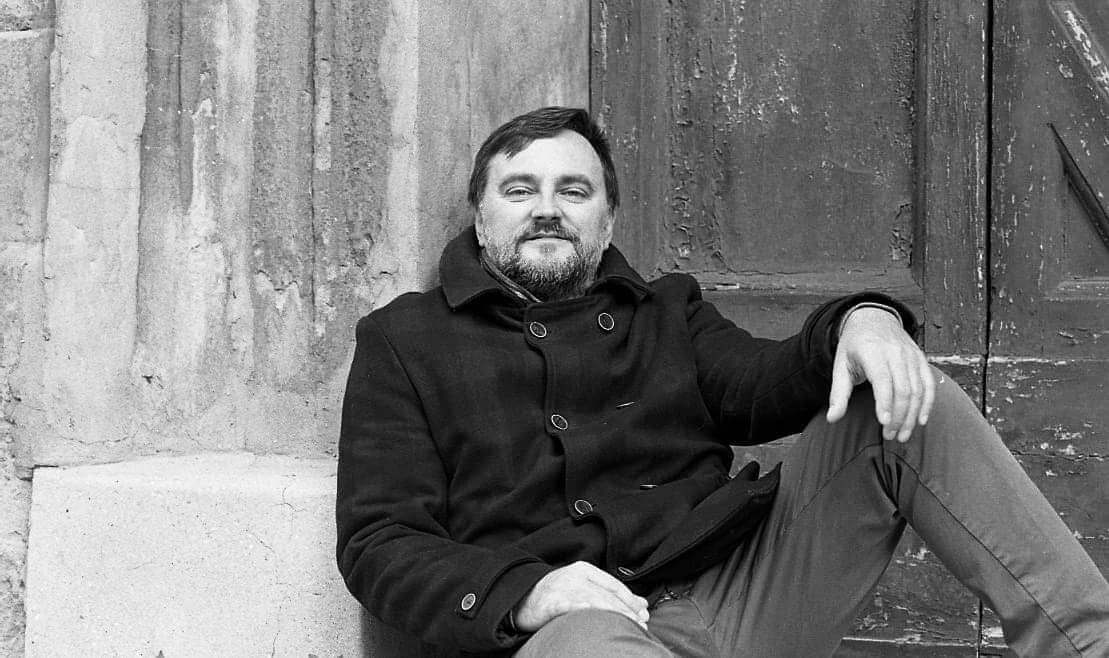
Christian Sinicco © Daniele Ferroni
#2 „The Lakes of Plitvice“ by Vanni Schiavoni (English translation by Graziella Sidoli)
Born in Manduria, Italy, but living in Bologna, Vanni Schiavoni published five poem collections: "Nocte" (1996), "The Suspended Balcony" (1998), "Of Humid and Days" (2004), "Salentitude" (2006), and "Walnut Shell" (2012). He also published two novels "Like Elephants in Indonesia" (2001) and "Mavi" (2019) and edited the poetic anthology "Red - between eroticism and holiness" (2010). Most recently, he also published poetical plaquette „Croatian Notebook“ which features twelve poems dedicated to six Croatian sites: Plitvice Lakes, Kornati, Šibenik, Trogir, Split, and Dubrovnik. Schiavoni wrote the "Croatian Notebook" after a week-long journey in the summer of 2017. His birthplace Manduria is located in the region of Puglia which is 30 miles away from the Pelagosa (Palagruža), the most distant Croatian island, and his surname originates from the name of the Slavonia region in Eastern Croatia.
„For me, it was not just a holiday trip but a journey in and out of everything that I am, a travel diary through which to bring out the game of mirrors between me and that place, between what I am and where I come from and what I have encountered“, said Schiavoni. This journey impacted him with images of the signs of Italy engraved in stone, mournings of the war, communist history („most heretical Communist party in the east in front of the largest Communist Party in the west“, as Schiavoni puts it) and as he added, „the same Adriatic Sea which gives both of us fishes and earthquakes“.
His poem „The Lakes of Plitvice“ is a lovely description of the mixture, the game, and visual eye-candy of the waters in Croatia's oldest National Park, and it linked with a search for bravery and the encouraging point that good and beauty can defeat evil and change it to something better.
THE LAKES OF PLITVICE
The first day they always plunge down into the same spot
the river rapids that come to the encountering
of the white river with the black river
and the more we think ourselves ready with our shrewd eyes
the fewer the adjectives made available to us before that wonder:
the green rush pushes our pupils towards a wild frenzy
it pushes them inside the tearful torrents by our feet
in the shrouded darkness of the sequential caves
and in the vertical caverns sculpted
as if by a hand capable of it all.
Yet Judas must have passed by this place
and though perhaps not the one with burning lips
a simple Judas must have become lost
in this mysterious grid of remorse.
These lakes fall into lakes as lashings on yielding branches
they flow into other waters and so they rain
endlessly
and perfectly untouched.
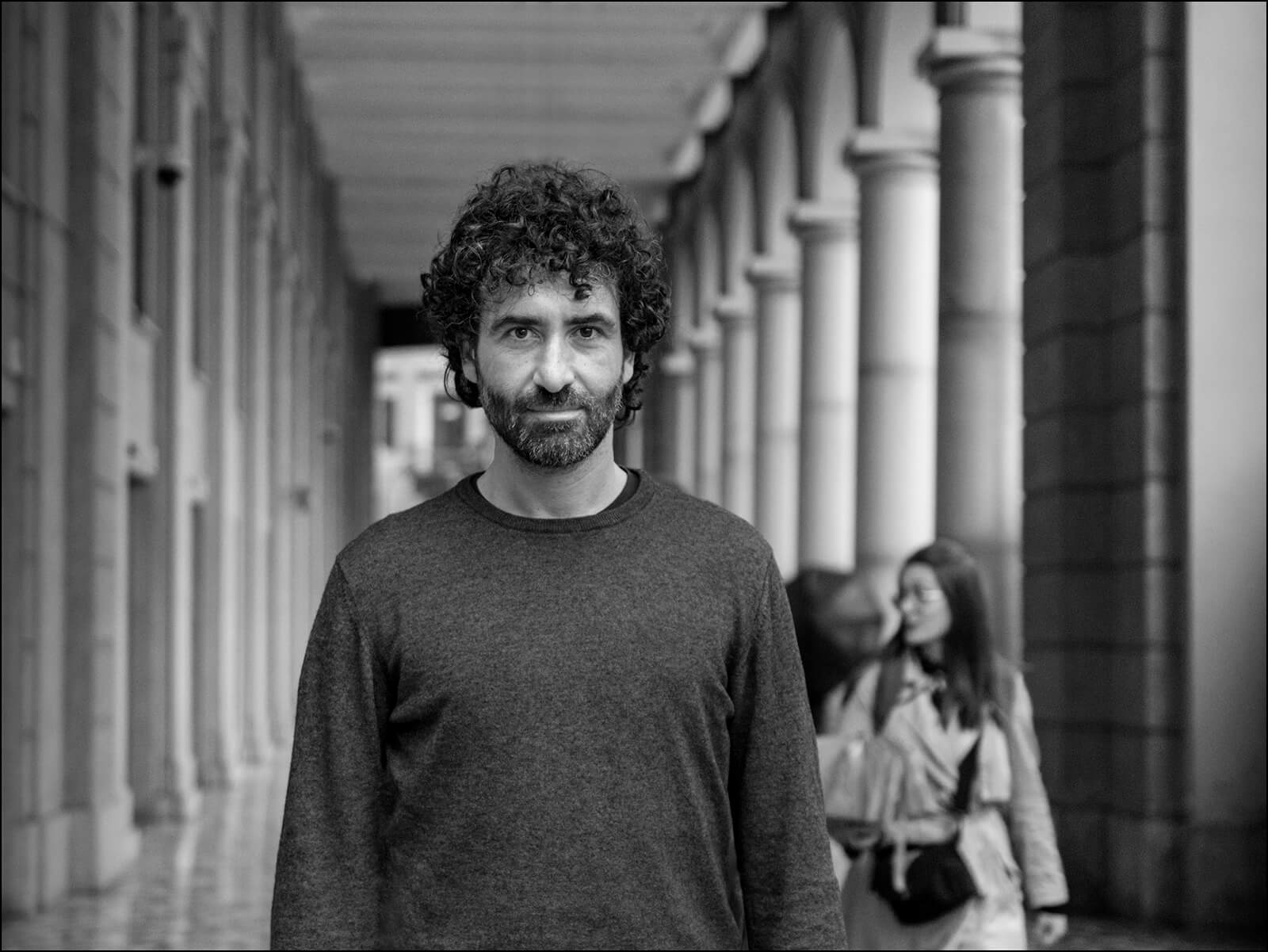
Vanni Schiavoni © Dino Igmani
#1 „Dubrovnik Rock“ by William Vastarella
After Schiavoni and Sinicco, our first-ranked poet is the conclusive evidence there is something so incredible about Croatia it really inspires poetically-inclined neighbors across the Adriatic. Born in Napoli in 1974, William Vastarella is a teacher of Italian Literature, geography, and History. He's has a Ph.D. in semiotics from the University of Bari and writes for several literary and cultural magazines in Italy. He also edited several poetry anthologies as well as semiotic essays. Vastarella visited Croatia several years ago and had a cultural and relaxing holiday on the seaside. „I found her so full of the Mediterranean spirit that I wrote a poem in Italian. I tried to translate it in other words, trying to leave intact the sounds of that memory“, said Vastarella about his poem on Dubrovnik.
The poem „Dubrovnik Rock“ is fantastic in the way, Vastarella visually invokes the images from the history of Dubrovnik (Ragusa) Republic and the relationship it had with Italians at that age with the waves of the Adriatic Sea as the link between Italy and Dubrovnik but also between past and present.
Dubrovnik Rock
Other singers claim to feel
singular vibes in the waves
Nearby this shore,
and so do I.
Ragusa, Dubrovnik
A name is not enough
To trap a soul.
I ask myself
Who’s the other side
Of the other side
As the seawater shuffles.
I touch with my finger
and now I know it’s real
the steel and the wood of the boat
powerful works of man
that wipe out weapons
and I ask no more.
I realize
we have been both
pirates and emperors
centurions and barbarians
through the centuries
each one to the other
a flurry flow
of slavers and Slavs,
slayers and saviors.
Sometimes when the north wind blows,
melting the white in waves,
painting clouds of amazing blues
mirroring the water in the sky,
space seems to become so narrow,
so easy the neighborhood,
then all
the voices of the ancient age
of an ancient game
of thousands lost
in that spot of time,
that spot of sea,
mutate in a mute roar singing
in which merge the rage of riot
and the call for help of a lot
castled in the rock
waiting for a drop of rain to drink
or friend sails on the horizon.
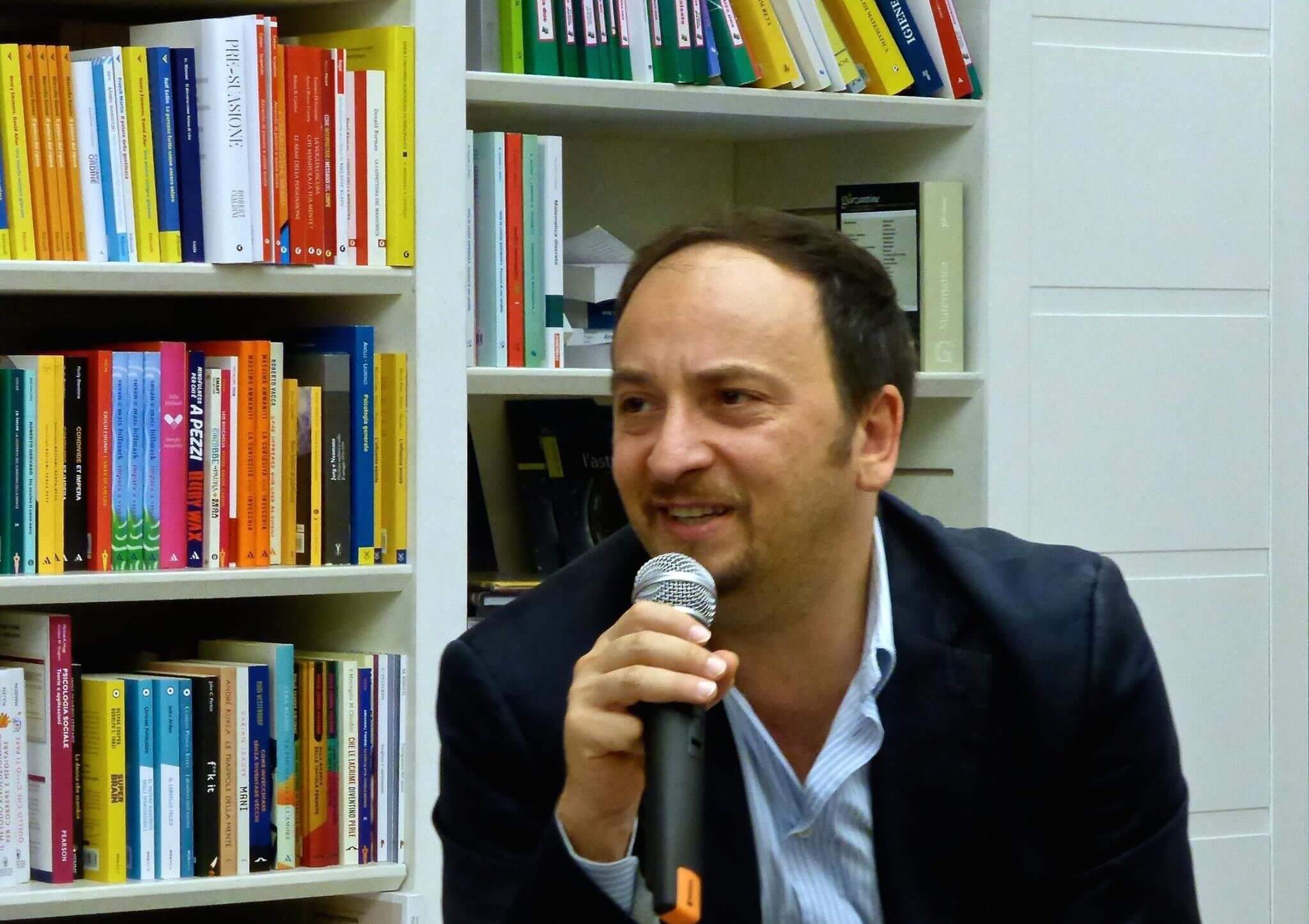
William Vastarella © Vito Signorile
For more about lifestyle in Croatia, follow TCN's dedicated page.
''Eighth Commissioner'' to be Screened in Los Angeles Next Month
Osmi Povjerenik will be screened in Los Angeles next month!

